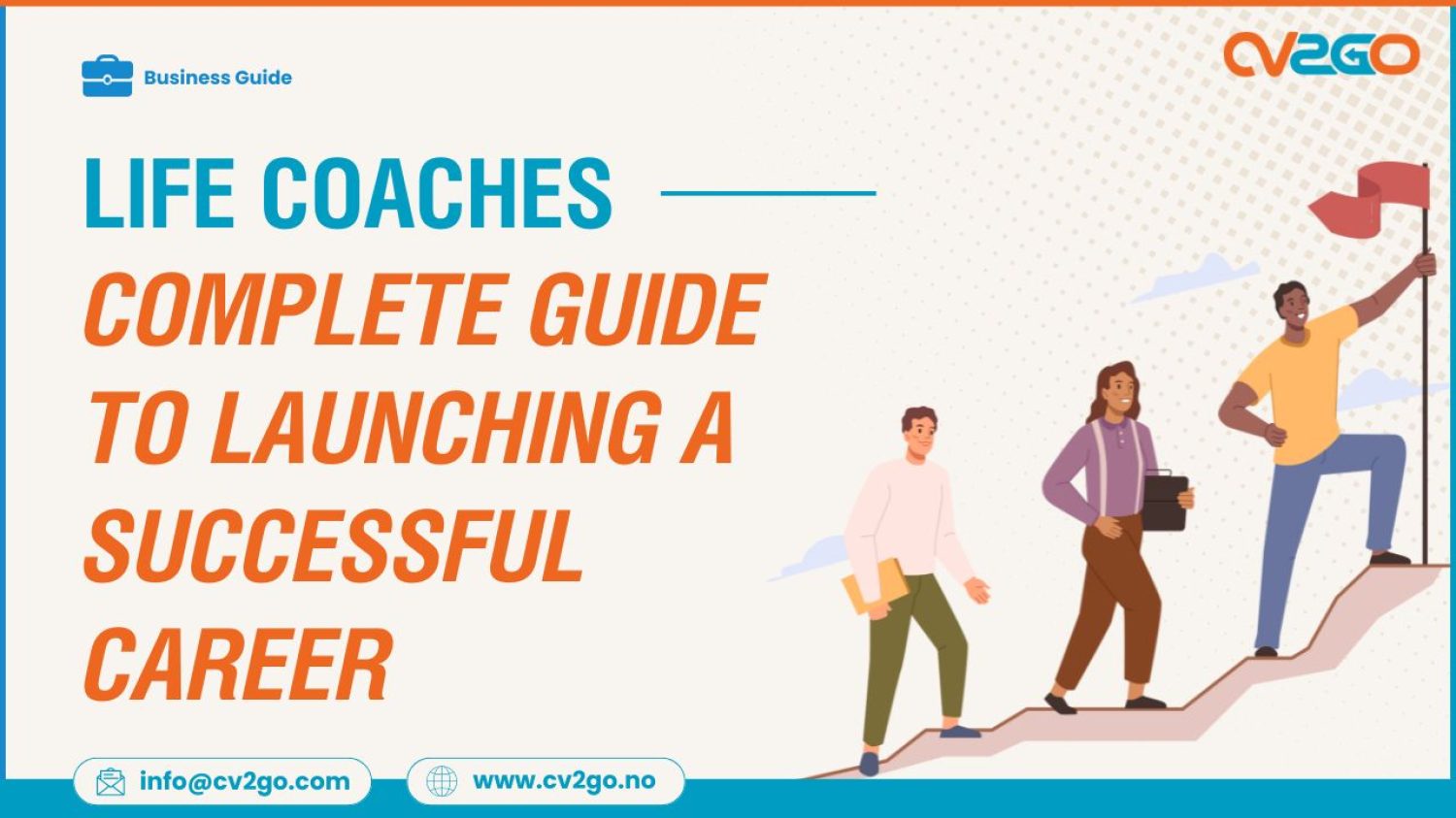Life coaching is a fulfilling career where you help people achieve their goals and create a better future. It offers flexibility, personal satisfaction, and the potential for attractive compensation. However, establishing yourself as a life coach and building a successful business can be challenging.
Don’t worry — we’ve got you covered. This guide will break down everything you need to know about becoming a life coach, including choosing between freelance and in-house roles, obtaining certifications, and preparing for interviews.
Freelance vs. Employee: Which is Right for You?
As a life coach, you have the option to work independently as a freelancer or as an in-house employee at a coaching firm. Both paths can be rewarding, and the choice depends on your career goals and lifestyle preferences.
Benefits of Working In-House
- Guaranteed Paycheck and Benefits: Enjoy financial stability and access to benefits like health insurance.
- Structured Career Path: Follow a defined progression within a company.
- Less Administrative Work: Focus primarily on coaching while administrative tasks are handled by the company.
Drawback: You may have less control over the clients you work with or the direction of your career.
Benefits of Freelancing
- Flexibility: Set your own hours and rates.
- Control: Choose the clients and projects that align with your interests.
- Potential for Higher Earnings: The ability to scale your business and charge premium rates.
Drawback: You’ll handle all administrative tasks and may face income fluctuations.
How to Become a Life Coach
1. Define Your Career Goals
Before diving in, establish clear goals for your life coaching career. Consider:
- Target Clients: Do you want to coach professionals, recent divorcees, or individuals recovering from addiction?
- Work Environment: Would you prefer coaching online, in-person, or a mix of both?
- Career Priorities: How do you balance work-life flexibility with financial success?
Clarifying these goals will help you make informed decisions and shape your business strategy.
2. Get Your Qualifications and Certifications
While certifications are not legally required to become a life coach, they can boost your credibility and skillset.
Popular Certification Options
- International Coaching Federation (ICF)
- Center for Credentialing & Education (CCE)
- Institute for Professional Excellence in Coaching (iPEC)
You might also pursue qualifications in related fields such as:
- Psychology
- Counseling
- Education
- Wellness and Nutrition
Choose certifications that align with your niche and career goals.
Create a Business Plan (For Freelance Life Coaches)
If you’re planning to freelance, a solid business plan will set you up for success. Key elements to include:
- Initial Costs: Website development, office space rental, marketing materials.
- Funding Sources: Personal savings, loans, or grants.
- Client Acquisition: How and where you’ll find clients.
- Pricing Structure: Your rates and package offerings.
- Legal Requirements: Business registration, tax IDs, and contracts.
- Insurance: Liability insurance to protect your business.
Market Yourself Effectively
Building a strong personal brand is essential to attract clients and opportunities.
Steps to Market Yourself
- Create a Professional Website: Include your services, testimonials, and a blog to share valuable insights.
- Social Media Presence: Platforms like LinkedIn, Instagram, and Facebook are great for connecting with potential clients.
- Networking: Attend online and in-person networking events, conferences, and workshops.
- Content Marketing: Offer free resources like e-books, webinars, or videos to showcase your expertise.
- Job Boards and Directories: List yourself on life coaching directories and job boards.
A professional business card and an elevator pitch are also invaluable tools for quick introductions.
20 Life Coach Interview Questions to Prepare For
Whether you’re interviewing for a job or onboarding a new client, these common questions will help you prepare:
- Tell me about yourself.
- What do you specialize in?
- Why are you applying for this role?
- Describe your coaching style.
- What are your strengths and weaknesses?
- How do you continue to develop as a life coach?
- What does a successful coaching session look like?
- What should clients expect from a session with you?
- How do you build trust with a client?
- How do you handle a client who’s a poor fit?
- What if a client struggles to express their goals?
- How do you maintain professionalism with clients?
- Describe a mistake you made and how you handled it.
- What career achievement are you most proud of?
- How do you stay sensitive to clients’ backgrounds and identities?
- What if a client poses a danger to themselves or others?
- How do you handle a client fixated on an unrealistic goal?
- Have you done online coaching?
- What are your long-term career goals?
- Do you have any questions for me?
Build a Standout Life Coach Resume
Whether you’re a freelancer or applying for an in-house role, a compelling resume is essential.
Key Elements of a Great Life Coach Resume
- Clear and Professional Layout: Easy-to-read formatting and structure.
- Customization: Tailor your resume to each role or client type.
- ATS Optimization: Include relevant keywords to pass applicant tracking systems.
Why a Resume Matters for Freelancers
Potential clients often want to see your background before committing. Adding your resume to your website can build trust and demonstrate your expertise.
At CV2Go, we provide life coach resume templates that are:
- ATS-friendly
- Easy to customize
- Professionally designed
Our resume builder helps you create a polished, professional resume in just 10 minutes with recruiter-approved phrasing and keyword suggestions.
Ready to Launch Your Life Coaching Career?
Life coaching offers an exciting opportunity to help others while building a fulfilling and flexible career. With the right goals, qualifications, business plan, and marketing strategy, you’ll be well on your way to success.
Visit CV2Go today to craft a resume that highlights your unique skills and niche. Your journey to a rewarding life coaching career starts now!




